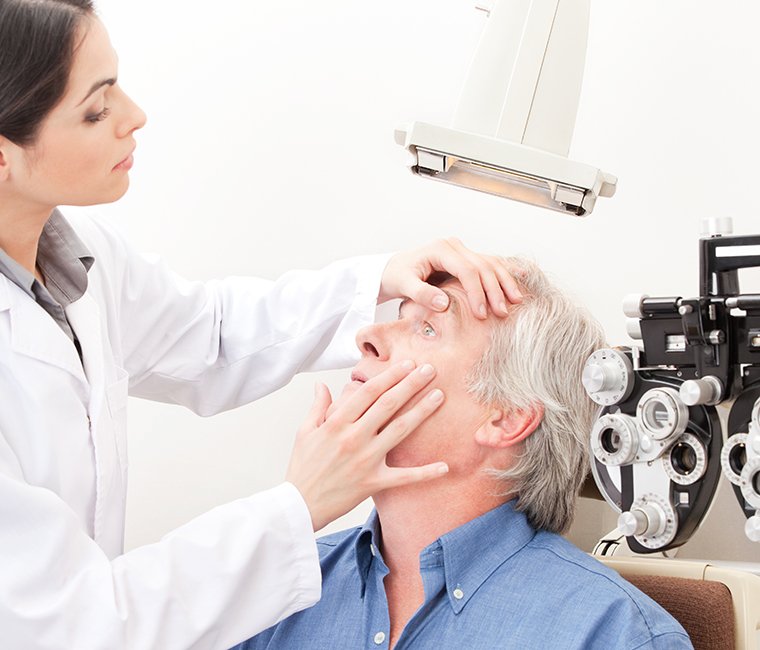The human eye is a complex sensory organ that detects light and converts it into electrical signals, which are then sent to the brain for visual processing. The main parts of the human eye include the cornea, iris, lens, retina, and optic nerve.
Here are some interesting facts about the human eye:
Complex Structure:
The human eye is a complex organ that enables vision by detecting light and converting it into electrical signals that the brain interprets.
Eye Colors:
Eye tone is analyzed by how many shades there are in the forward portion of the iris. Common eye colors include brown, blue, green, and hazel.
Saccadic Movements:
The eyes make rapid, involuntary movements called saccades, allowing us to focus on different objects or points of interest in our field of view.
Lens Flexibility:
The lens in the eye is flexible and changes its shape to focus on objects at varying distances.This procedure is known as accommodation.
Blind Spot:
Each eye has a blind spot where the optic nerve connects to the retina. However, our brains compensate for this, so we don’t usually notice the gap in our vision.
Rods and cones:
The retina contains two types of photoreceptor cells—rods and cones. Rods are responsible for vision in low light, while cones are responsible for color vision and visual acuity in brighter conditions.Blinking: On average, someone blinks approximately 15-20 times in a minute. Blinking helps to moisten the eyes, remove irritants, and spread tear film.
Tear Production:
Tears are essential for maintaining the health of the eyes. They help to lubricate, nourish, and protect the cornea, which is the outermost part of the eye.
Binocular Vision:
The human eyes are positioned in a way that allows for binocular vision, providing depth perception and a three-dimensional view of the world.
Peripheral Vision:
While the center of the retina provides detailed vision, the peripheral parts of the retina contribute to our ability to detect motion and objects in our surroundings.
Rapid Healing:
The cornea, the transparent front part of the eye, is one of the fastest-healing tissues in the human body. It can recover from minor injuries within a day or two.
Unique Iris Patterns:
Like fingerprints, each person has a unique iris pattern. This distinctiveness is used in biometric identification systems.
Here are some tips to help protect your eyes:
Regular Eye Exams:
Schedule normal eye checks with an eye-care professional. Regular check-ups can help detect potential issues early on, allowing for timely intervention.
Healthy Diet:
Consume a balanced diet rich in fruits and vegetables. Foods high in vitamins A, C, and E, as well as minerals like zinc, can contribute to good eye health.
Stay Hydrated:
Drink plenty of water to maintain overall health, including eye health.
Protective Eyewear:
Wear protective eyewear, such as safety glasses or goggles, when participating in activities that could pose a risk of eye injury, such as sports, construction work, or home repairs.
UV Protection:
Shield your eyes from harmful ultraviolet (UV) rays by wearing sunglasses that block 100% of UVA and UVB rays. Prolonged exposure to UV rays can contribute to cataracts and macular degeneration.
Computer and Screen Use:
Follow the 20-20-20 rule when using digital devices: every 20 minutes, look at something 20 feet away for at least 20 seconds. Adjust your screen settings and use proper lighting to reduce eye strain.
Proper Lighting:
Ensure adequate lighting when reading or working. Avoid glare from direct or reflected sunlight, and use proper lighting sources to reduce strain.
Eye-friendly Workspace:
Set up your computer workstation to minimize eye strain. Adjust the screen height, use an anti-glare screen if necessary, and position yourself at a comfortable distance from the screen.
Quit Smoking:
If you smoke, quit. Smoking is linked to an increased risk of cataracts, macular degeneration, and other eye diseases.
Manage chronic conditions:
Control conditions like diabetes, hypertension, and other systemic diseases, as they can affect eye health. Regularly monitor and manage these conditions with the help of your healthcare provider.
Hygiene and Safety:
Practice good hygiene to prevent infections. Wash your fingers very well before touching your eyes or coping with touch lenses. Avoid sharing eye makeup and replace cosmetics regularly.
Rest and sleep:
Ensure you get adequate sleep to promote overall well-being, including eye health.
Here are some renowned eye specialists in India who are highly respected in the field:
Dr. Daljit Singh:
Renowned for his expertise in vitreoretinal surgery, he has made significant contributions to the field of ophthalmology.
Dr. S. Natrajan:
A prominent figure in the field of corneal transplantation and refractive surgery, Dr. Natrajan is highly regarded for his expertise. Dr. S. Natarajan, another leading expert in corneal diseases and surgery, has contributed extensively to the advancement of corneal transplantation techniques in India.
Dr. Mahipal S. Sachdev:
A well-known name in the field of cataract surgery and refractive surgery, Dr. Sachdev has received numerous awards for his contributions to ophthalmology.
Dr. Rohit Shetty:
Specializing in corneal disorders, refractive surgery, and keratoconus management, Dr. Shetty is recognized both nationally and internationally for his work.
Dr. Cyres K. Mehta:
Renowned for his expertise in cataract surgery, Dr. Mehta is highly respected among his peers and patients alike.
Dr. Amar Agarwal:
He is a pioneer in the fields of phacoemulsification and refractive surgery and has received several awards for his innovative techniques.
Dr. Raghu Nagaraju:
Specializing in pediatric ophthalmology and strabismus, Dr. Nagaraju is known for his expertise in treating eye disorders in children.
These are just a few of the many highly skilled eye specialists in India. It’s important to do thorough research and consider factors such as location, specialization, and patient reviews when choosing the right specialist for your needs. Additionally, consulting with your primary care physician or seeking recommendations from trusted sources can also help in finding the best eye specialist for you.
Internal link: opticalsworld




